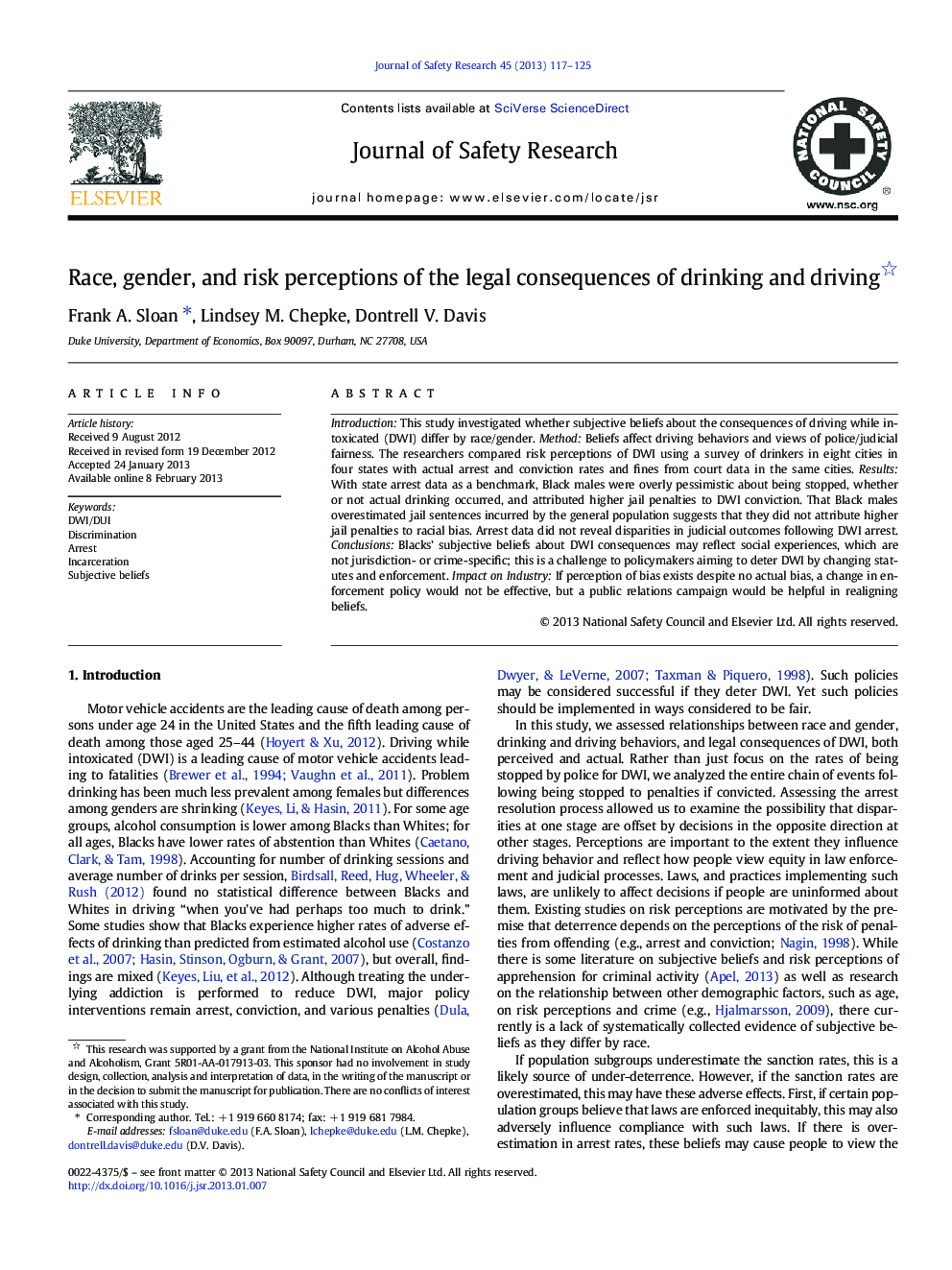| Article ID | Journal | Published Year | Pages | File Type |
|---|---|---|---|---|
| 587380 | Journal of Safety Research | 2013 | 9 Pages |
IntroductionThis study investigated whether subjective beliefs about the consequences of driving while intoxicated (DWI) differ by race/gender.MethodBeliefs affect driving behaviors and views of police/judicial fairness. The researchers compared risk perceptions of DWI using a survey of drinkers in eight cities in four states with actual arrest and conviction rates and fines from court data in the same cities.ResultsWith state arrest data as a benchmark, Black males were overly pessimistic about being stopped, whether or not actual drinking occurred, and attributed higher jail penalties to DWI conviction. That Black males overestimated jail sentences incurred by the general population suggests that they did not attribute higher jail penalties to racial bias. Arrest data did not reveal disparities in judicial outcomes following DWI arrest.ConclusionsBlacks’ subjective beliefs about DWI consequences may reflect social experiences, which are not jurisdiction- or crime-specific; this is a challenge to policymakers aiming to deter DWI by changing statutes and enforcement.Impact on IndustryIf perception of bias exists despite no actual bias, a change in enforcement policy would not be effective, but a public relations campaign would be helpful in realigning beliefs.
► Drinking/driving (DWI) rates were higher for men than women, across races. ► Black men had higher subjective probabilities of stops and jail for DWI than white men. ► Responses imply blacks did not attribute differences in their beliefs to racial bias. ► Overall, actual DWI enforcement and judicial decisions did not differ by race. ► Patterns of misperceptions suggested weak transmission of deterrent signals.
